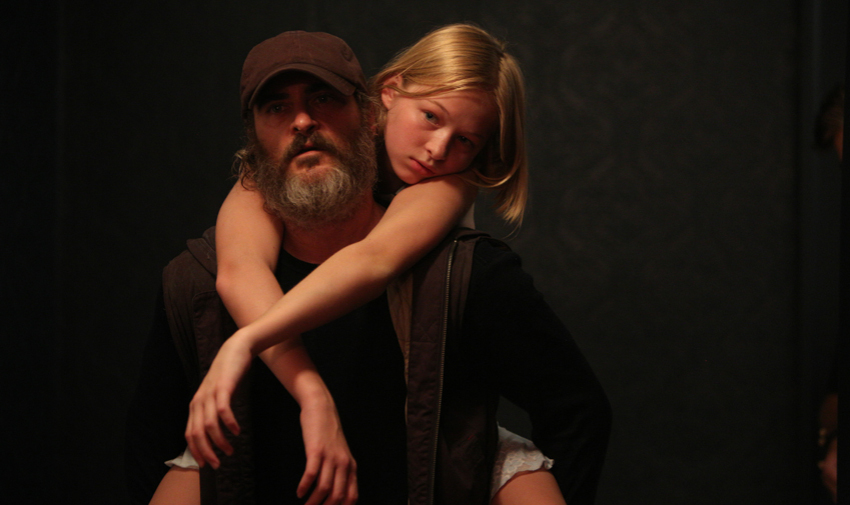Longform critical writing on film is in a financially dire state as more and more outlets struggle to find the business model that could support detailed analysis of filmmaking in a market dominated by outlets that appeal to increasingly small attention spans. Some have rallied their own critical troops and formed online magazines, such as the excellent Bright Wall/Dark Room, from whom we publish a monthly excerpt and encourage you to subscribe. BW/DR devotes their monthly issues to themes, but the talented crew over at Seventh Row have done something fascinating this month by devoting an entire e-book to writing and interviews related to one of the best films of 2018, Lynne Ramsay’s “You Were Never Really Here.” We here at RogerEbert.com are big fans of the film—I loved it at Sundance and Sheila O’Malley gave it 4 stars when it was released—and it strikes us as the kind of film that could slide under the radar during the year-end conversation about the best of the last 12 months. Seventh Row’s e-book allows for a deeper appreciation of a brilliant piece of art. Let’s hope there are still opportunities and a market for pieces like this for a long time to come.
The 68-page e-book, which sells for $17.99 CAD (about $13.75 US), and you can buy here, collects five interviews and two essays from editors of Seventh Row. The interviews are with writer/director Lynne Ramsay, producer Jim Wilson, sound designer Paul Davies, editor Joe Bini, and director of photography Thomas Townend. The essays are by Orla Smith (“A Hitman More Helpless Than Heroic”) and RogerEbert.com contributor Elena Lazic (“Ramsay’s Characters Escape Trauma Through Sensations”). The interviews are informative and detailed, often flowing into one another. For example, Smith’s essay reads better immediately after her interview with Ramsay before it in the book. It’s what we want more often from critical analysis—a conversation with the art and its creators—but so rarely get. An excerpt is included below. Get your copy now and let’s encourage more writing like this before we no longer have the chance:
“Through sound and images, Ramsay asks us to share Joe’s subjective headspace, constantly confronting us with what it’s really like inside his head: a horrific, PTSD-fuelled nightmare. The present day action is regularly interrupted by sudden, visually incongruent flashes and abrupt sound shifts which plunge us into Joe’s past. Flashbacks—to his abusive childhood, his time as a soldier, and his later stateside police rescue missions—jar with the present day action. The serene calm of the morning as Joe wakes up is interrupted by the blindingly bright image of the foot of a dying girl, twitching in the desert, particles of sand loudly crunching against each other. It attacks the senses without warning, leaving both us and Joe shaken.
The film often sounds like a bad headache or a hangover—but that’s how life feels for Joe all the time. When we see him leave a hotel room at the beginning of the film, tired out after a job, each trudging footfall is accompanied with an ear-splitting, clashing guitar chord —as if to stress how much of an effort each step is for Joe. His detachment from the rest of the world is disorienting. Greenwood’s score is often unpleasantly discordant with the sound of the environment around Joe. When he takes a taxi to the airport, the driver’s absent-minded singing, otherwise unobtrusive and harmonious, creates a dizzyingly off sound because it clashes against Greenwood’s synth.”
To get your copy of the “You Were Never Really Here” special issue e-book, click here












